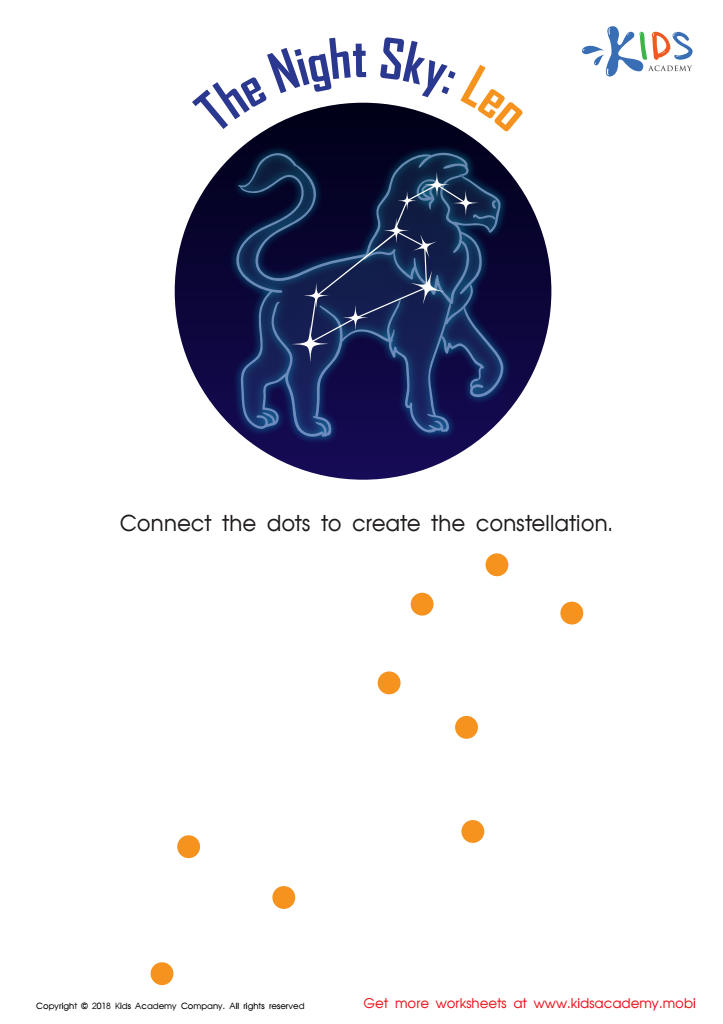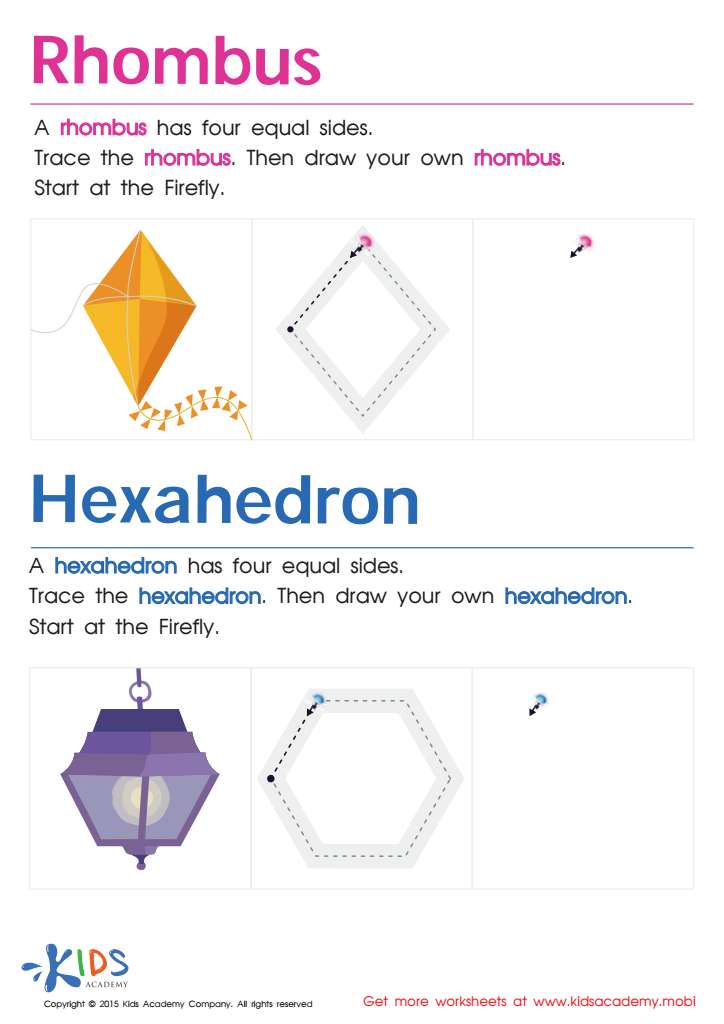Fine motor skills (tracing) Worksheets for Ages 5-8
3 filtered results
-
From - To
Boost your child's fine motor skills with our engaging tracing worksheets designed specifically for ages 5-8. These worksheets enhance hand-eye coordination and dexterity through fun activities, allowing children to trace letters, shapes, and playful objects. As they practice, kids develop the necessary skills for writing, drawing, and everyday tasks. Our friendly illustrations and diverse themes make learning enjoyable and keep young minds captivated. Perfect for both classroom settings and home education, our printable resources provide a valuable foundation for lifelong learning. Explore our collection today and watch your child's confidence and skills flourish while tracing their way to success!


The Night Sky: Leo Worksheet


Draw a Rhombus And a Hexahedron Printable
Fine motor skills, the small movements of the hands and fingers, are crucial for children's overall development, particularly in the ages of 5 to 8. At this stage, children are often transitioning from preschool to formal education, where tracing activities play a significant role. Parents and teachers should care about these skills for several reasons.
Firstly, tracing helps develop hand-eye coordination, which is essential for writing, drawing, and other everyday tasks. Children learn to control their hand movements, which builds the foundation for writing letters and numbers legibly. Enhanced fine motor skills also support self-confidence; as children master these tasks, they become more capable and willing to take on new challenges.
Moreover, proficient fine motor skills can influence academic success. Many subjects, including math and science, require precision in tasks such as crafting graphs or working with tools. On a social level, fine motor activities can foster teamwork when children engage in collaborative projects, enhancing communication skills.
In short, nurturing fine motor skills through tracing prepares children for future academic and life challenges, establishing a strong base for their growth and learning. Parents and teachers should prioritize these skills to support children’s holistic development.
 Assign to My Students
Assign to My Students
















